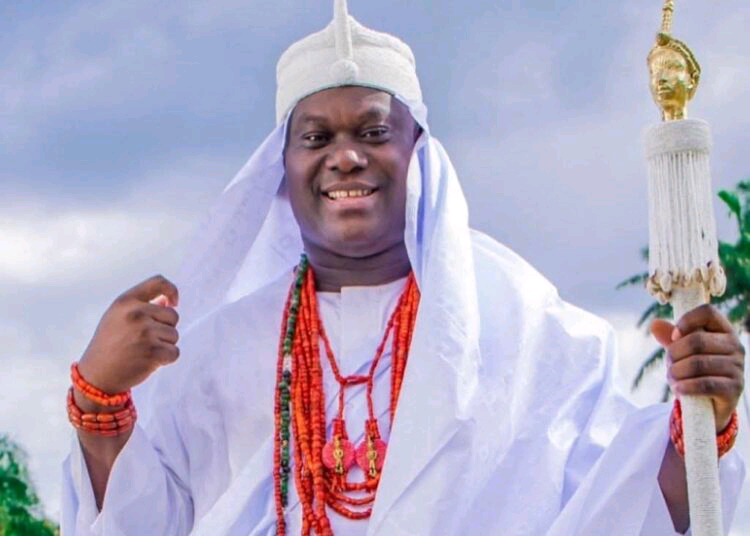The Timeless Authority of the Ooni of Ife Cannot Be Challenged

As a legal practitioner deeply versed in legitimacy, sovereignty, and the cultural jurisprudence of traditional institutions, I find the recent ultimatum reportedly issued by the Alaafin of Oyo to the Ooni of Ife over the conferment of the title Okanlomo of Oodua on Chief Dotun Sanusi to be not only gratuitous but constitutionally unsound. This incident is more than a surface provocation; it is an impermissible assault on the very foundation of Yoruba heritage and seeks to revive a contest over jurisdiction that neither law nor history supports.
In legal practice, actions must be intra vires, meaning within lawful authority. The Ooni of Ife’s conferment of the title falls squarely within his ancestral and cultural prerogatives. These prerogatives are sui generis—unique and inherent—and cannot be usurped by any other throne. They are not derived from conquest or political power but stem from the normative foundation of Yoruba civilization itself.
“Beat the Pressure: A Comprehensive Guide to Lowering Blood Pressure Naturally.”
Buy book from Gumroad or Paystack
From a jurisprudential perspective, Hans Kelsen’s theory of Grundnorm teaches that every legal order’s validity flows from a basic norm. In Nigeria, that Grundnorm is the Constitution. In Yoruba civilization, however, the Grundnorm is Oòdua itself—the unalterable source of legitimacy—with the Ooni as its custodian and living embodiment. To challenge the Ooni is, therefore, akin to questioning the Grundnorm itself, a juridical absurdity.
This is grounded in history: the concept of Oòdua predates colonialism, nationhood, and even the modern ethnic label “Yoruba.” Oòdua represents the primordial and civilizational descent from Odùduwà, the progenitor of the Yoruba people, whose origins trace back to Ile-Ife. Every Yoruba monarch, including the Alaafin of Oyo, holds legitimacy only insofar as their crown symbolically connects to Odùduwà and Ile-Ife.
While “Yoruba” is a relatively modern ethnolinguistic term popularized in the 19th century, it is not a civilizational covenant. The sacred identity of Oòdua is the root, and the ethnolinguistic term is merely a branch. Tradition and scholarship unanimously affirm Ile-Ife as the cradle of the Yoruba people and the primordial seat from which all Yoruba kingdoms derive their authority.
The Ooni of Ife’s position transcends parochial boundaries much like the Pope’s spiritual authority in Christendom or the Japanese Emperor’s symbolic legitimacy above the military Shogunate. Unlike the Alaafin, whose authority historically arose from conquest and expansion, the Ooni’s legitimacy is primordial, spiritual, and universal, respected across all Yoruba kingdoms, from Oyo to Ekiti, Ijebu to Ondo.
Legally, no statute or Supreme Court ruling vests exclusive pan-Yoruba jurisdiction in the Alaafin. Traditional rulers are recognized through state chieftaincy laws, not through claims of imperial conquest. Historically, governments from colonial times to the present have recognized the Ooni of Ife as a monarch of pan-Yoruba stature. Oba Adesoji Aderemi, for example, was both a spiritual leader and the first African Governor of the Western Region, affirming his cultural and political ascendancy.
The oft-cited Supreme Court decision purportedly supporting Alaafin’s exclusive authority must be confined to its specific facts. No judicial precedent declares the Alaafin the sole custodian of Yoruba legitimacy. No Yoruba-speaking state law grants the Alaafin exclusive authority to confer titles of pan-Yoruba importance, and courts cannot extend such jurisdiction by fiat.
The conferment of the title Okanlomo of Oodua on Chief Dotun Sanusi—a distinguished Yoruba entrepreneur and philanthropist—is a cultural honour symbolizing unity and fraternity. Such honours fall squarely within the Ooni’s remit as custodian of Yoruba identity.
History supports this practice. Previous Oonis, including Oba Adesoji Aderemi and Oba Okunade Sijuwade, have been rallying points for Yoruba unity, commanding respect from monarchs across Nigeria and the diaspora, convening assemblies at Ile-Ife, the epicenter of Yoruba identity. Their acts of cultural guardianship have never been invalidated but celebrated as affirmations of unity.
By honouring Chief Dotun Sanusi, the Ooni affirms excellence and Yoruba solidarity. The law is clear, history unambiguous, and jurisprudence settled: the Ooni of Ife has exercised his lawful authority intra vires, as the ancestral father of the Yoruba nation. His competence to confer symbolic honours of unity is beyond reproach.
In conclusion, the Ooni’s conferment of the title Okanlomo of Oodua is legally, historically, and morally sound. It serves as a timely reminder that while empires rise and fall, the foundation of Yoruba identity—rooted in Ile-Ife and embodied by the Ooni—remains timeless, indivisible, and unimpeachable. The Alaafin of Oyo should be counselled accordingly.
Pelumi Olajengbesi Esq.
Legal Practitioner & Managing Partner, Law Corridor
Pelumi@lawcorridor.org
💔 “She said she loved me. And for fifty-two years, I believed her.” 💔
Buy The Book "The Longest Lie: A Husband’s Journey Through Love, Betrayal, and Redemption" From Gumroad






